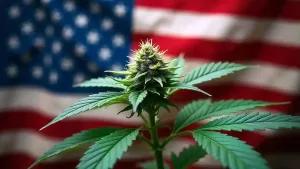Boss Day is celebrated all around the world on October 16th. It’s important to recognize those who lead us in our daily lives. At the same time, let us acknowledge those who have shaped, and continue to shape, entire industries. In the world of cannabis, countless trailblazers have left an indelible mark. They’ve driven change, broken down barriers, and built a thriving industry that continues to grow. From early activists to modern-day entrepreneurs, these leaders—both men and women—have been instrumental in pushing for legalization, advancing social justice, and innovating new products.
In this blog, we’ll explore the stories of some of the most influential figures in the cannabis industry. We will look at their contributions, and how they have shaped the landscape we know today.
Early Activists and Legal Pioneers: Fighting for Legalization
The fight for cannabis legalization was not an easy one. For decades, cannabis activists faced legal battles, public opposition, and societal stigma. However, their persistence paid off as legalization efforts have now taken root across much of the U.S. and beyond

Credit: D. Paul Stanford/Wikipedia Commons
Jack Herer: The Emperor of Hemp
Jack Herer, known as the “Emperor of Hemp,” was a relentless advocate for cannabis and industrial hemp. His book, The Emperor Wears No Clothes, is widely regarded as a cannabis legalization manifesto.
He believed that hemp could be more than a source of textiles, as in the past. He believed it could also provide textiles, paper, and food. Herer’s advocacy contributed to the modern push for cannabis legalization, and today, a high-THC strain, “Jack Herer,” is named in his honor.
Mary Jane Rathbun ("Brownie Mary")
“Brownie Mary,” a key figure in early cannabis activism, became famous in the 1980s. She was known for baking cannabis brownies and distributing them to AIDS patients in San Francisco.
Rathbun’s work helped change the perception of cannabis from a recreational drug to a potential medicinal solution. Her tireless efforts supported the passage of California’s Proposition 215 in 1996, the first law to legalize medical marijuana in the U.S.
Business Innovators: Building the Cannabis Industry
While early activists paved the way for legalization, the cannabis industry needed business visionaries to transform it into a legitimate and thriving market.

Credit: Mike Capson/ Wikipedia Commons
Steve DeAngelo: The Father of the Legal Cannabis Industry
Steve DeAngelo is a cannabis entrepreneur and advocate who co-founded Harborside, one of the first legal dispensaries in the U.S. Obviously, he was a strong proponent of cannabis reform.
DeAngelo has been a leading voice in shaping cannabis policy and promoting the normalization of cannabis use. His business savvy and advocacy helped elevate cannabis from an illicit market to a regulated industry.
Nancy Whiteman: Leading the Edibles Market
Nancy Whiteman, often referred to as the “Martha Stewart of edibles,” is the CEO and co-founder of Wana Brands, one of the largest cannabis edibles manufacturers in North America.
She has been instrumental in innovating cannabis-infused products, focusing on both the recreational and medical markets. Whiteman’s leadership has helped bring cannabis edibles into the mainstream. This makes her one of the most successful female entrepreneurs in the cannabis industry.

Credit: Mike Capson/ Wikipedia Commons
Advocates for Social Justice in Cannabis
As cannabis becomes increasingly legal, it’s important to acknowledge the social injustices that have plagued cannabis prohibition. This is all the more true in marginalized communities. Several leaders have taken up the mantle to address these issues.

Credit: Keith Allison/ Wikipedia Commons
Al Harrington: Elevating Social Equity
Former NBA player Al Harrington transitioned from sports to cannabis entrepreneurship with his company, Viola. It is names after his grandmother, who used cannabis to treat glaucoma! Viola focuses on promoting social equity and economic empowerment for Black and brown communities in the cannabis industry.
Harrington advocates for cannabis reform and works to ensure equitable opportunities in the industry. This makes him a prominent figure in cannabis activism.
Wanda James: A Trailblazer for Diversity in Cannabis
Wanda James made history as the first African-American woman to own a legal cannabis dispensary in the U.S. She is a passionate advocate for social justice, particularly regarding the racial disparities in cannabis-related arrests and incarcerations. James continues to be a vocal proponent for minority representation in the cannabis industry and fights for equitable reform.
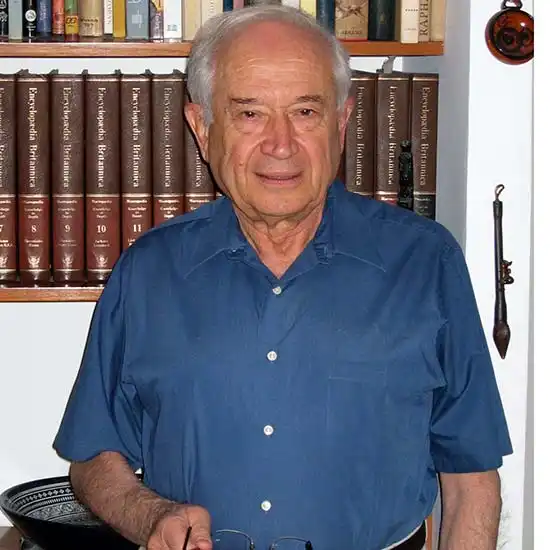
Credit: Wikipedia Commons
Innovators in Cannabis Research and Medicine
Dr. Raphael Mechoulam: The Father of Cannabis Research
Raphael Mechoulam, Israeli chemist, is credited with discovering the structure of THC, the main psychoactive compound in cannabis (1964).
His research laid the foundation for understanding how cannabis interacts with the human body, particularly through the endocannabinoid system.
His work has been instrumental in the development of medical cannabis treatments and understanding its potential therapeutic benefits.

Credit: Wikipedia Commons

Credit: Wikipedia Commons
Sue Sisley: Pioneering Cannabis Research for Veterans
Dr. Sue Sisley is a professional clinical researcher. She is known for her work in studying the effects of cannabis on post-traumatic stress disorder (PTSD) in veterans.
Despite legal and bureaucratic hurdles, Sisley has continued to push for more research into cannabis treatment for mental health disorders.
Her persistence has been critical in advancing the scientific understanding of cannabis’s potential to treat PTSD and other conditions.
U.S. Presidents that Have Supported Cannabis Legalization in the Past
Cannabis legalization has come a long way, thanks in part to political leaders who have recognized its potential. At least two U.S. presidents have acknowledged the cannabis industry for economic growth, medical treatment, and criminal justice reform.
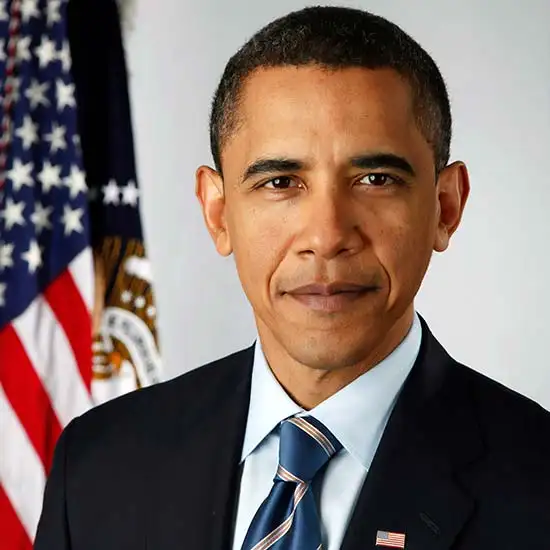
Barack Obama
Yes, President Barack Obama did not push for full federal legalization during his time in office. However, his administration took steps to soften the government’s stance on cannabis.
Under Obama, the Department of Justice issued the Cole Memo in 2013. It effectively allowed states to legalize cannabis without fear of federal interference. His public acknowledgment of using cannabis in his youth also helped normalize the conversation around cannabis use.


Jimmy Carter
President Jimmy Carter advocated for the decriminalization of cannabis during his presidency. In 1977, Carter called for federal penalties for cannabis possession to be reduced.
This move set the tone for future debates about cannabis policy. Though full decriminalization didn’t occur under his administration, his advocacy was significant in shaping later reforms.

Mainstream Acceptance and Global Expansion
Effective leadership in the cannabis industry has already played a pivotal role in driving its acceptance. Today, strong leaders continue to shape its global expansion.
Steve DeAngelo is often credited with normalizing cannabis through his activism and founding of Harborside Health Center. He showed how leadership could challenge stigma and lay the groundwork for future business opportunities.
Moreover, leaders like Nancy Whiteman, CEO of Wana Brands, are pushing boundaries by expanding into new markets. The result? Cannabis edibles has become a household name across North America!
As the industry expands globally, the next generation of leaders will need to navigate complex international regulations. Sundie Seefried, CEO of Safe Harbor Financial, is already pioneering solutions to one of the most significant challenges in cannabis—financial services.

Her leadership in developing cannabis banking could facilitate international transactions and growth, ensuring cannabis companies can scale efficiently across borders. The right leadership will ensure that cannabis not only achieves mainstream acceptance but also becomes a sustainable global market.

Innovation in Products and Consumption Methods
Cannabis leaders who foster innovation are shaping the industry’s future. They are developing new products and consumption methods that cater to a broader range of consumers.
The story of Charlotte Figi and the development of Charlotte’s Web products is one such famous anecdote. It revolutionized medical cannabis and sparked the mainstream CBD market. This innovation came from a desire to help those with medical needs, illustrating the importance of compassionate leadership in product development.
Today, David Klein, CEO of Canopy Growth, continues to innovate with cannabis-infused beverages and edibles, The company offers consumers more discreet, convenient, and socially acceptable ways to enjoy cannabis.
His forward-thinking approach has helped normalize these products, moving cannabis into the realm of mainstream consumer goods.
As technology advances, the next wave of leadership will focus on more sophisticated delivery methods. This could include nanotechnology for faster absorption and precise dosing. Emerging entrepreneurs like Bianca Snyder, founder of High Society Mama, are exploring innovative wellness products catering to new market segments. Leaders who prioritize research, quality, and creativity will continue to drive innovation. The future will probably see cannabis products more accessible and diverse than ever before.
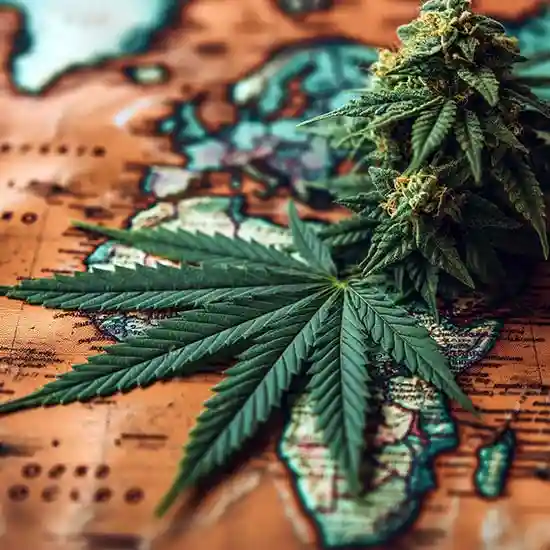
Social Equity and Inclusion
Leadership in cannabis must address the need for social equity and inclusion, especially given the industry’s history of disproportionate criminalization.
Wanda James, founder of Simply Pure, exemplifies leadership that merges business success with social justice. Her work advocates for racial equity and social inclusion in cannabis. It shows that the right leaders can influence policies that open doors for underrepresented communities. Leaders like James are essential for fostering a more equitable industry that acknowledges its past and creates opportunities for everyone.
In the regulatory space, Shaleen Title, former Commissioner of the Massachusetts Cannabis Control Commission, is leading efforts to ensure that cannabis policies prioritize equity. Her expertise has shaped inclusive regulations.
She advocates for laws that create pathways for those most affected by prohibition to join the legal market. As the industry grows, the role of leaders in advocating for fairer access will become even more critical.

New initiatives and mentorship programs led by forward-thinking individuals will ensure that future cannabis entrepreneurs have the support they need. Leaders who focus on inclusion and equity, like Christine De La Rosa, co-founder of The People’s Dispensary, are creating companies that reinvest in marginalized communities. These efforts are helping to shape a cannabis industry that is not only profitable but also socially responsible.
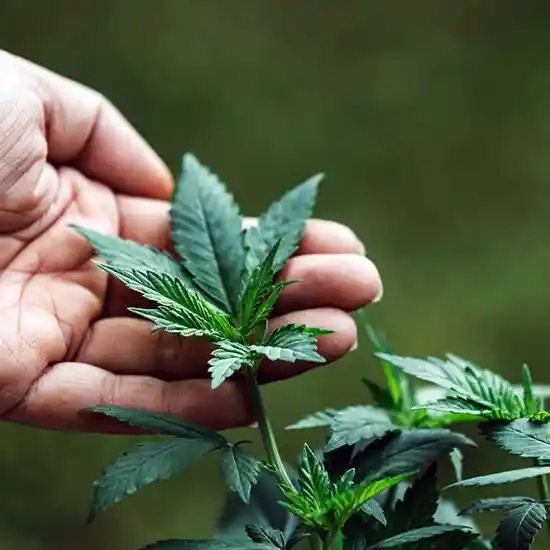
Sustainability and Environmental Responsibility
As the cannabis industry grows, sustainability is becoming an essential consideration. Leaders who prioritize environmental responsibility are not just benefiting the planet. They are also creating lasting business models that will endure regulatory scrutiny and consumer demand for eco-friendly products.
Jesce Horton, (founder of LOWD, co-founder of the Minority Cannabis Business Association) is a pioneer in promoting sustainable cultivation practices. His leadership shows that cannabis can be grown efficiently and responsibly, reducing the industry’s environmental footprint.
Future leaders will need to follow in Horton’s footsteps, pushing for greener technologies and cultivation methods. The next wave of cannabis entrepreneurs will likely explore innovations like energy-efficient LED lighting, water conservation techniques, and eco-friendly packaging. As environmental concerns grow among consumers, leaders who invest in sustainability will differentiate themselves in the market.
The growing trend of regenerative farming prioritizes soil health and reduces carbon emissions. It is another area where leadership can have a profound impact. Leaders who embrace these methods will be better equipped to meet the demands of environmentally conscious consumers. Ultimately, they will help the cannabis industry evolve into a greener, more sustainable business.

The Role of Technology and Data
Technology and data will play a transformative role in the future of cannabis. Understandably, leaders who embrace these tools will drive the industry’s progress. Automated cultivation systems, advanced tracking software, and data analytics are already helping businesses optimize operations and ensure compliance with regulatory frameworks.
Amy Margolis is a prominent cannabis attorney and founder of The Initiative. She exemplifies how leadership in legal and regulatory frameworks can guide the industry’s adoption of technology to streamline operations.
As the cannabis market becomes more competitive, leaders who leverage technology to improve efficiency and decision-making will stand out. Data-driven insights into consumer behavior, purchasing trends, and product preferences will allow businesses to refine their offerings. Ultimately this will lead to better engagements with their target audience. Leaders who embrace technological innovation through automation or customer data,will be able to make smarter, faster decisions that fuel growth.

In the future, emerging technologies like artificial intelligence, blockchain, and biotechnology will open new frontiers for the cannabis industry. Leaders who stay ahead of the curve and invest in these innovations will be able to push the industry toward more sophisticated and sustainable practices, while providing consumers with high-quality, personalized experiences.
The future of the cannabis industry will be led by leaders navigating the landscape of regulation, innovation, and consumer demands. From global expansion to sustainability and social equity, the right leadership will ensure that the cannabis industry thrives. This should ideally go hand in hand with remaining ethical, inclusive, and responsible. Leaders who embrace change and prioritize long-term benefits over short-term gains will drive the industry into its next era of growth and success.
Conclusion
In celebrating the pioneers and innovators who have shaped the cannabis industry, it’s clear that visionary leadership has been, and will continue to be, the driving force behind its evolution. These leaders have not only spearheaded significant strides in legalization, social justice, and business innovation, but they have also laid the groundwork for a future where cannabis is a mainstream, sustainable, and socially responsible industry. As we honor these trailblazers, we are reminded of the immense potential of inspired leadership to break barriers and build lasting, positive change. The cannabis industry’s future, guided by such leadership, promises continued growth, inclusivity, and innovation.
The information provided is not a substitute for professional medical advice, diagnosis, or treatment. Consult with a qualified healthcare professional for personalized advice based on your medical condition.




